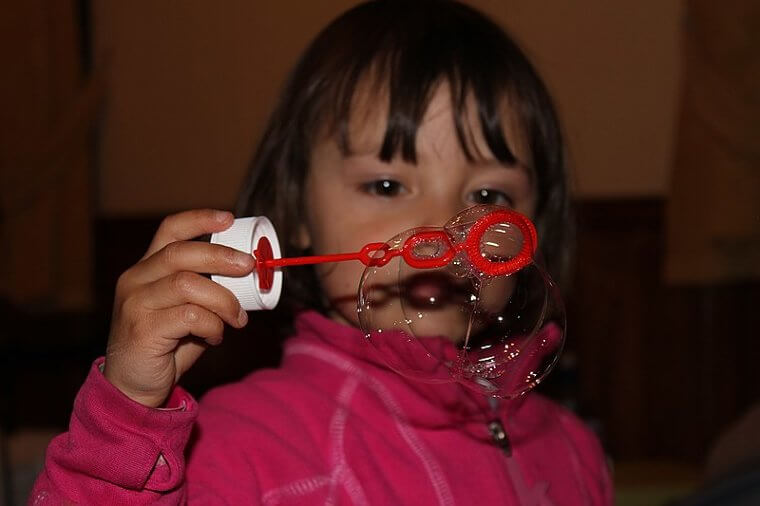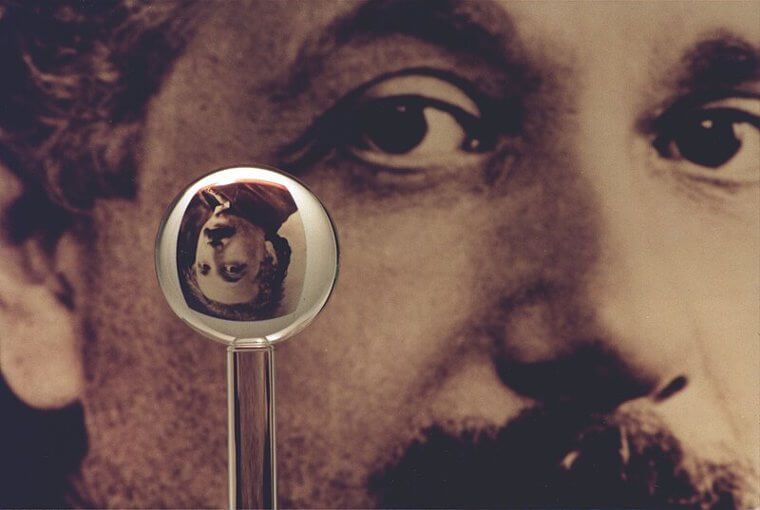IQ has long been held up as a benchmark for a person's intelligence, and while it does have some bearing, it doesn't take into account everything. There are a lot of other things besides a simple IQ test that can indicate how smart or clever a person is. And many of those things are actually pretty simple and common, from having a certain hobby to just possessing a specific personality trait. Every hobby and trait on this list could mean someone is a lot smarter than they let on. Read on to see if you're actually a lot smarter than what you always thought!
Character Traits That Could Be An Indicator Of a Higher IQ Score
Published 1 year ago
Curiosity is another trait that's been shown to be an indicator of how intelligent a person is. It sort of makes sense if you think about it, though, as a person who's curious about everything is actually just showing an appetite for learning. And when are people usually their most curious? It's when they're really young and learning about the world around them. This also happens to be when their brain develops in overdrive.
However, for our purposes, we're focusing on people who still maintain their curiosity as they age, which is what one 2016 study in the Journal of Individual Differences looked at. Being curious means you're constantly learning new things!
In the 2016 study, researchers took a group of children and identified the smartest 11-year-olds in the group. They found that those 11-year-olds tended to be more curious than their peers as they aged. The reason for this seems pretty simple. If you develop a love of learning and question everything you come in contact with, then you're more likely to continue to be inquisitive and learn as you grow older.
Some people (pretty smart people, we might add) have even said that being curious is more important than being intelligent. And luckily, it's something you can nurture and develop, even if you weren't born with it.
We're sure everyone has their favorite comedian or even close friend who just happens to be incredibly funny and smart. It turns out that there's actually a link between being funny and intelligent. The University of Mexico once conducted a study trying to figure out the link between intelligence and comedy. The 2011 study found that people with higher verbal intelligence tended to write the best jokes for cartoons that were put up.
It kind of makes sense if you think about comedy as being made up of a series of patterns since one of the marks of intelligence is being able to recognize patterns.
That study, and others, found that funny people tended to be a bit more intelligent than their peers both in a social setting and in a more formal setting, such as during a standup comedy session. However, we should also mention that those who tended to be more intelligent had an affinity for darker humor. That is, they preferred jokes that could sometimes be seen as offbeat or self-deprecating to others.
That doesn't mean that there was anything dark about the person themselves, but that they enjoyed jokes that weren't typical. In other words, they were considered "out-of-the-box" jokes.
This one might irk some of you dog lovers out there, but research has shown that the brightest among us tend to favor cats. That's right, the debate has finally been settled once and for all. Well, maybe we shouldn't go that far but Wisconsin’s Carroll University's Denise Guastello did find that being a cat lover and being intelligent were linked in a personality trait study she did in 2014.
And while we love both cats and dogs equally, we will say that her findings actually make a lot of sense once you read what she had to say about it all.
During an interview with LiveScience, Guastello said that “It makes sense that a dog person is going to be more lively, because they’re going to want to be out there, outside, talking to people [and] bringing their dog. Whereas, if you’re more introverted and sensitive, maybe you’re more at home reading a book, and your cat doesn’t need to go outside for a walk.” This also sort of jives with another trait that intelligent people sometimes have.
That is, their preference to be alone rather than out meeting up with friends. If you're intelligent and don't really want company, but kind of do want company at the same time, you're more likely to opt for a cat.
Okay, so this one might seem a little obvious, but it totally holds true. Reading is like exercise for your brain, so you should expect anyone who reads a lot to be sharp mentally. Now, it does depend on what they read, but you don't necessarily have to read and understand a book on quantum mechanics for this to apply. Reading literary fiction has also been shown to improve cognitive function.
If you're looking for an easy way to give your brain a workout, then we'd say the easiest way is to probably start reading an hour a day. You'd probably be amazed at the results after a month or two.
You don't just have to take our word for it, either, as there have been many studies showing that reading boosts brain power. A study called the Twins Early Development Study, which was done in the U.K. compared a set of twins to see how reading affected their development. It ended up finding that the twin who read developed better mentally than the twin who didn't read. That said, reading doesn't just have an effect on young children.
According to a 2014 article published in The Guardian, researchers managed to link reading to an increase in three different categories of intelligence, including, perhaps a bit surprisingly, emotional intelligence.
This one might come as a surprise, but people who tend to be very observant of their surroundings and the people around them tend to be smarter. That's because instead of yapping away, they're actually thinking critically about something that they are seeing or something that's happening. What does Sherlock Holmes do when he's trying to solve a case? He takes in the scene around him and takes care to notice the details.
So, in short, be like Sherlock Holmes the next time you walk into a room. Being observant is also an example of something else that tends to be a good indicator of how intelligent a person is.
For as long as people have communicated and spent time with other people, there's been some variation of the saying, "The smartest person in the room isn’t always the loudest." But that's how Bustle put it in a 2019 article with psychologist and neurotherapist Dr. Catherine Jackson. In the article, Dr. Jackson said, “In a world where people talk to prove who they are, highly intelligent people are the opposite.”
Simply stopping and taking time to observe and take everything in gives you the ability to see patterns or signs that other people may not have the chance to see.
We're pretty sure that everyone has been told by their teacher or someone at work to think outside the box when trying to solve a problem. It turns out that if you tend to think outside the box often, then it's probably a sign that you're pretty sharp. Consider, for a second, Albert Einstein, or really anybody who's ever come up with something wild, new, and genius. All of their ideas were way outside the box.
It's really one of the few ways to solve lingering problems or create something entirely new. However, what does thinking outside the box actually mean when put into practice?
Oftentimes, people who think outside the box consider rules to be more like guidelines than actual things that are set in stone and have to be followed no matter what. Take, for example, the English language. We all learn the "rules" of English in school, but in truth, there is no one governmental body creating these rules. Authors, who are usually pretty smart people, break these rules all the time.
The same could be said for Albert Einstein, who had a set of scientific rules or "theories," but sort of broke them when he was mapping out his own theory.
Here's another one that we weren't expecting to see on this list. People who exhibit more self-control tend to be more intelligent. Many of us probably see those people in our lives who always seem to take the future into account when making career plans or even when it comes to a night out. You don't have to take our word for it, though, as there have been studies showing the same thing.
A 2009 study was published in Psychological Science that looked at people's intelligence and their ability for self-control. To do this, it posed a simple question to all of its participants.
For the study, researchers gathered together a group of people and asked them a simple question. They told those participants that they would either be given some money right then or more money at some random point in the future. Those with higher IQs waited it out for the most part and said they preferred to have the larger cash payout in the future. They suspected that the link has something to do with the part of the brain that's responsible for decision-making.
However, it isn't just humans that researchers have tested this theory on. Intelligence has also been linked to self-control in chimps, cuttlefish, and other various animals out there.
This one probably seems a bit obvious, but it's important to note that researchers have been able to prove that there's a link between creativity and intelligence. In fact, one of the most intelligent people to ever live actually said that he favored creativity over intelligence, but we'll get to that in a sec. The link probably comes down to the fact that people who are creative are better able to find different solutions to the same problem.
Being creative also shows a capacity to recognize and link patterns. And while most of us think of something like art when we think about creativity, it can actually be found in just about anything.
Okay, so let's bring in Einstein and look at what he had to say about creativity. During an interview with the Saturday Evening Post, he said, “Imagination is more important than knowledge, for knowledge is limited, whereas imagination embraces the entire world, stimulating progress [and] giving birth to evolution.” We're definitely not scholars, but it seems like he's saying that imagination gives you a wider range of possibilities and conclusions to draw from than if you were simply knowledgable.
There's also the fact that many studies have found a pretty high correlation between intelligence and creativity, especially when it comes to people who are especially gifted or smart.
Humans evolved as social creatures, so it's kind of weird to think that being happier when you're alone than when you're with people has been linked to higher levels of intelligence. However, evolutionary psychologists Norman P. Li and Satoshi Kanazawa conducted a study that found just that. They looked at a group of young people and found that, for the most part, the more time they spent with friends, the happier they were.
However, the results diverged when looking at people who were more intelligent. In fact, their overall satisfaction levels actually decreased the more they hung out with their friends. Obviously, this wasn't because they had bad friends.
While the study found a link between intelligence and social interaction, it didn't definitively answer the question as to why this is. One theory is that those who are more intelligent are better able to kick the evolutionary tendencies that make us so social in the first place. In short, we no longer need to be social in order to have shelter, food, or whatever else we need, so there's no need for it.
Another theory is that highly intelligent people are better able to focus on the things they want to achieve, so they tend not to spend as much time with friends, which can be distracting.
We're sure that there are a lot of people out there who are going to be happy to hear this one. Being a night owl has been linked to intelligence. That's right, forget anything anyone has ever said about how you shouldn't stay up all night and wake up early in the morning. They were all wrong. Well, that might be a tad bit extreme but you get what we're saying.
There are a couple of different ideas out there on why this might be the case, but one of the main theories has to do with some of us deliberately kicking our evolutionary clock to the curb in order to get more done.
A study that was published in Personality and Individual Difference stated that the link between intelligence and staying up late is due to the simple fact that smart people are more likely to be able to overcome their evolutionary clocks and stay up late in order to achieve their goals. We're sure there's a bit more to it than that, but we don't hit enough boxes on this list to be able to make that distinction.
However, it's worth noting that the study didn't say that staying up late and missing sleep was linked with intelligence. Doing that can decrease cognitive function. Instead, it said that staying up late and waking up later in the morning was linked with intelligence.
This one might seem a bit ironic at first, but it actually makes perfect sense. Smart people tend to know and more readily admit that they don't know everything. In other words, intelligence has been linked to someone's ability to admit when they don't actually know something. Think about it for a second. We're sure you know someone who you consider pretty bright, who often admits when they don't have the answer.
On the other side of the spectrum, you have people who would never admit that they didn't have the answer, no matter how much dancing they have to do to get around a question.
It really all comes down to one simple fact. When confronted with something they don't know, intelligent people will often look at it as a way to learn something new. It's actually kind of more like a habit in that regard. They'll take a question they may not know anything about and take the time to actually go and find the answer, which over time helps them learn and grow.
If you never admit that you're wrong or that you don't know something, then how do you ever expect to learn anything new or overcome a difficult problem that's gotten in your way.
Here's another one that seems kind of obvious, but that's worth exploring anyway. According to a 2008 Yale University survey, more intelligent people tend to be more open-minded or listen to multiple arguments before making up their minds about a question. In fact, they preferred to hear multiple sides of an argument before replying with an answer. They were also more receptive to those different arguments than others who responded.
Research has also shown that people who are more open-minded tend to score better on things like their SATs and other forms of tests. However, this one does come with a caveat.
While being willing to listen to both or multiple sides of an argument is linked to higher levels of intelligence, those same people are sometimes less likely to change their minds once they've made it up. Smart people have also been shown to be really careful about what ideas they believe are true. So, while they're willing to listen to different ideas, that doesn't necessarily mean they will be swayed by one.
We suppose that this could be viewed as both a good or bad thing, depending on what the idea or problem is. You could also probably file this under personality trait.
Here's another trait that's sure to be music to some people's ears. Being messy, cluttered, or unorganized has been linked to intelligence. So, if you know someone out there who keeps a messy room or home, it might just be that they're secret geniuses. A couple of different studies have pointed to being messy as an indicator of intelligence. One 2012 university study found that a mess, in a weird way, improves some people's focus.
It's thought that working with a mess around you forces you to focus harder on whatever you're working on, which we guess sort of makes sense if you think about it really hard.
Another study done by a different university found something similar. They looked at the clutter on students' desks and found that those with more clutter turned out to be more creative than those who were more organized. However, you only have to look at a handful of real-world examples to start seeing a link. For example, Albert Einstein was known for having a disorderly workspace. And there were plenty of others.
Steve Jobs wasn't exactly known for being organized, and neither was Thomas Edison. The famous author, Mark Twain, was also known for keeping a desk quite literally covered in different papers.
Rambling on to yourself might seem like the first sign that you're losing your mind, and it might seem that way to others around you as well, depending on how you're doing it. However, it could in fact mean the opposite. Researchers have found a link between those who talk to themselves and intelligence. During an interview with the BBC, associate professor of psychology Gary Lupyan said talking to yourself is “not an irrational thing to do.”
So, if you ever find yourself in your room alone, blabbering away and asking yourself a lot of random questions, don't fret; it just means that you're probably a lot smarter than you think (hopefully).
The reason why talking to yourself is considered a sign of intelligence is actually rather simple. During the same interview with the BBC, Lupyan said, “You don’t know everything you’re going to say. You can even surprise yourself. Saying a name out loud is a powerful retrieval cue. Think of it as a pointer to a chunk of information in your mind. Hearing the name exaggerates what might normally happen if you just bring something to mind. Language boosts that process."
In other words, having a conversation with yourself aloud gets the brain pumping a lot faster than if you were just thinking about something, like a problem, in your head.
We're sure everyone has seen the stereotype of the genius who happens to lack anything that even remotely seems like a social skill. And researchers actually thought the same way for a while. Today, we know that emotional intelligence and IQ are actually linked. Look no further than the link between comedy and intelligence, which requires that a person be able to interact and read people, whether in a room or on stage.
However, a 2014 study concluded that we might not know as much as we think we do about empathy and its link to intelligence, as well as to our brains.
Researchers stumbled across this link during a study published and called Social Cognitive and Affective Neuroscience. We know that's a mouthful, but the 2014 study basically looked at the neural pathways of soldiers who'd had head wounds and concussions. Their findings came as a bit of a surprise as they found empathy turned out to be closely linked to intelligence and that it was much more complex than they'd anticipated.
Most people are born with a certain level of empathy, but you can still improve your empathy by developing certain habits. One great way to improve empathy is as simple as making an effort to talk to new people.
You've likely seen this one play out in some form or another, whether that be at your workplace or at home. Smart people tend to be more modest, and those who... let's just say, might not be the brightest crayon in the box, tend to think that they're smarter than they actually are. Unlike some of the other traits on this list, researchers have known that modesty is linked with intelligence for a while now.
The link even has its own name, and it's called the Dunning-Kruger effect. However, it's worth noting that writers, scientists, and philosophers have pretty much always noted the link between modesty, or a lack of it, and intelligence.
Once again, we're not scientists or scholars, but we'll try to break down the Dunning-Kruger effect the best we can. It was named after David Dunning and Justin Kruger, who found that the students in their class who were most competent tended to underestimate their abilities, while the opposite was also true. There were a couple of different things going on here. For starters, being knowledgeable about a subject opens you up to see just how much you still have yet to learn about said subject.
In their study, they wrote that incompetent individuals “will be less able…to recognize competence when they see it.” They also noted that it sometimes depended on if they had any real understanding at all of the said subject.
Swearing like a sailor has pretty much always been looked down upon and thought of as a pastime for those who don't actually have a wide-ranging vocabulary. However, fret not all you sailors out there because that assumption has been proven wrong. In fact, researchers found that those who swear more actually have a larger vocabulary than those who tend to swear less. The study was done by Timothy and Kristin Jay.
The researchers were from the Massachusetts College of Liberal Arts, and they sat down to explain their findings to an eager public after their work was first published.
The researchers, during their interview, said that “The overall finding of this set of studies, that taboo fluency is positively correlated with other measures of verbal fluency, undermines the [normal] view of swearing.” Basically, a person's willingness to swear, even though it is somewhat considered rude or taboo to do so, is actually just a sign of their intelligence. It might be because intelligent people are generally more willing to flaunt the rules.
Swearing hasn't just been linked to intelligence. It's also been linked to how honest someone is, as well as how creative they are. It also helps improve pain tolerance. So, if there's one thing you take away from this list.
While it definitely isn't fun to be anxious all the time, we suppose the fact that it has been linked to smarts helps a bit. In 2015, researchers set out to study the correlation between intelligence and anxiety. They gathered around 44 people and discovered that among those 44, the smartest were always worried about social interactions. So, if you're the type of person who's still thinking about that one thing you said to a friend over a month ago, then don't worry cause it just means your brain is operating on a higher level than the rest of us.
That said, the study did come with one caveat, and it's quite a surprising one, too. It turned out that the opposite could also be said for people who didn't worry at all.
The researchers found that people who tended to not have a care in the world when it came to social interactions or things they said in the past were also linked with higher levels of intelligence. Basically, both extremes of the spectrum showed some level of increased intelligence when compared with their peers in the middle. And if you're curious as to what part of the brain is responsible for anxiety, or a lack thereof, it's called the subcortical.
We should also say that while anxiety was linked with smarts, the person who was anxious didn't have to be diagnosed with some kind of social disorder. It was just more severe than among their peers.
This one has a couple of surprising caveats, but we'll start out with the results of a 2007 study. It found that children who were breastfed tended to have six more IQ points than children who weren't breastfed. It might not sound like a lot, but six IQ points is actually a pretty large gap for something as simple as being breastfed. The study was published in the Proceedings of the National Academy of Sciences.
However, it also found something else that was a bit strange. Only a certain subset of the breastfed babies showed this gain of six IQ points when compared to their peers.
The only babies who benefitted from breastfeeding, at least when it came to IQ points, were the babies that carried a gene called FADS2. Why was this you might ask? Well, researchers were a bit curious, too, so they came up with a theory. They thought it might have something to do with the gene allowing those babies to metabolize certain acids that were found in their breast milk better.
However, it's not for certain, and much more research is needed to prove whether or not this is the case. But it's still definitely an interesting result nonetheless.
If you have siblings, then we're sure that you and your sibling had an argument over who was smarter at some point in your lives. Hopefully, you don't still argue with them over something as silly as who's smarter anymore, and if you're the oldest you don't really have to. Now, you have proof. A study by the National Institute of Occupational Health in Norway found that first borns tend to get all the smarts. Okay, maybe not all the smarts, but they did tend to be more intelligent than their siblings.
Professor Petter Kristensen headed the study, and while you might assume it came down to genetics, that might not actually be the case. At least, Kristensen has said it might not be.
The researcher has said that it might actually come down to the family environment being better for learning after the first child is born. Maybe parents just take more care when raising a firstborn child than they do by the time a second, third, etc., comes around. There have been other studies that seem to point to the same thing as Kristensen alludes to, but if you're a firstborn, it may not be time to take that victory lap just yet.
Kristensen, during an interview with the Daily Mail, also said, “We are cautious because we did not have data on the social and psychological climate in [test families].” Meaning there's still not enough data on the subject to say for sure.








































